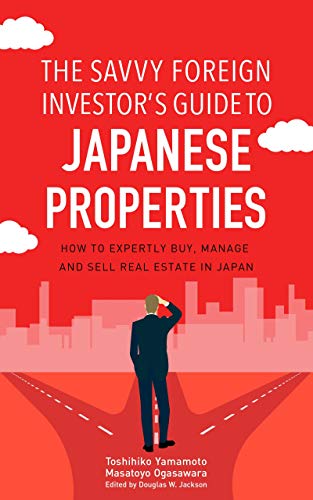In this chapter I’d like to get into some specifics about your pregame strategy, dealing with brokers and agents, necessary procedures, zoning and other things to check about the properties, and legal issues related to real estate investments in Japan.
Along the way, I’ll give you advice on handling some unexpected facets of the real estate game here, as well as some useful online resources.
Smart search
Before you step into a real estate agent’s office or talk to a broker, you have to decide on your objectives and strategy, and what kind of properties you want to buy in Japan. Walking in and saying, “Find me a property” doesn’t work. First decide whether you want a conventional or unconventional property, and what you’re going to do with it.
Also, even if you are a high-net-worth investor, you need to set some sort of budget limit, and decide what funds to allocate. You also need to decide whether you want to live in Japan or not. The Hong Kong broker I spoke with said perhaps 10 percent of his clients are buying places here for their own use; the other 90 percent are purely in it for the investment. A wealthy Thai woman I met recently said much the same.
However, some high-net-worth people buy places here simply because they don’t want to stay in hotels. That Hong Kong broker is looking for a house for an investor who wants his own place whenever he comes to Kyoto, even it’s just for two weeks. His family members and friends can stay there as well, like a vacation rental or exclusive timeshare.
Such investors don’t care that much about yield, only about securing a place that’s got a good environment, is close to transportation, and has restaurants and shops around. Other aspects also take on importance, such as the number of the bathrooms. That particular investor wanted parking space for two cars, for example.
Once you’ve decided on your objectives and strategy, you can do a rough survey of your chosen area by looking through listings on a couple of well-known websites in Japan. One is called Rakumachi (https://www.rakumachi.jp/), and the other is called Kenbia (https://www.kenbiya.com/ar/ns/). They have thousands of listings all over Japan. You can get a good idea of what’s available and pricing from these sites, but the properties listed are usually not the best ones because Japanese law doesn’t require brokers to list all the inquiries they receive from owners. Some brokers intentionally do not list prime properties on those websites because they want to make special deals.
Broker contracts and practices
When a person selling a property wants to use a broker to locate a buyer, there are three types of representation the person can choose from: (1) general (ippan), (2) exclusive (sennin), and (3) restricted exclusive (senzoku sennin).
Under the last two types, brokers must register the listing. For exclusive contracts, obviously the investor must work with that broker. If you are exclusive with a broker, the broker must register it because you’re giving them exclusivity. Japanese law requires those exclusive broking contract properties to register with the official system.
Under the first type of contract, which means general broking, buyers and sellers are not obliged to use one broker only. So if the investor goes for a general broking agency contract, the broker does not have to register the property with the official website.
To Be Continued

